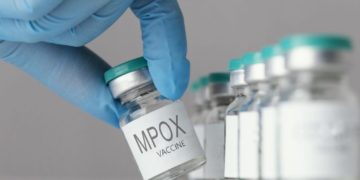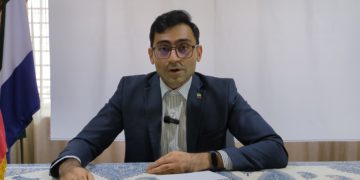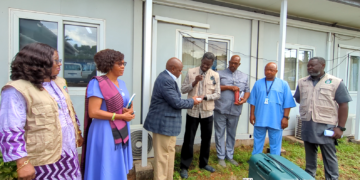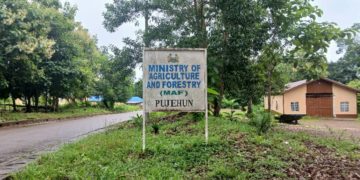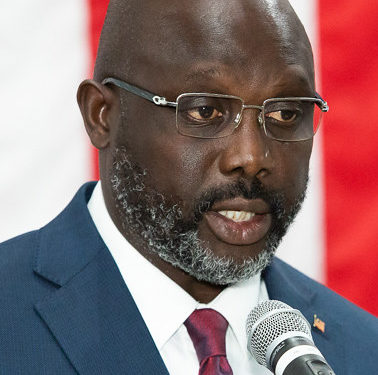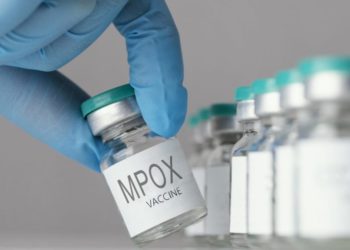The government of Liberia has announced tax exemption on all imported agricultural products as a way of promoting local production.
The decision was announced through a presidential decree issued by the Executive Mansion in Monrovia on Monday, January 23. It states that it was aimed at solidifying the gains realized under a previous Executive Order by President George Weah geared toward accelerating the development of the country’s forestry and agricultural sectors.
“The action furthers the government’s determination to seek and promote a stable macroeconomic environment that enables private-sector-led economic growth, greater competitiveness, and diversification of the economy,” the statement reads.
Agriculture, including forestry, accounted for 31 percent of Liberia’s real Gross Domestic Products in 2021, with over 60 percent of its population depending on it for their livelihood, according to official government data.
However, most Liberian farmers engage in subsistence practice, which has meant that they barely produce enough to take care of their own needs. The country imports over 80 percent of its rice consumed, making it vulnerable to global food price volatility, according to the same data source.
Liberia experienced serious shortage of rice in the last half of 2022, leading to long queues at shopping centers.
The presidency says this latest move is meant to prevent such, noting that the decision stemmed from findings of local and international partners in the agricultural sector and the government’s internal review process which discovered that tariffs associated with agriculture inputs were high and that they were adversely affecting the sector and poor rural farmers who rely predominantly on agriculture for their livelihood.
“The Order is consistent with the PAPD [Pro-poor Agenda for Prosperity and Development], the Liberian Government and international partners’ determination towards making tremendous strides to boost the agriculture sector by working with key market players to make agriculture affordable for farmers through; inter alia, farm development and management, aggregation, good agriculture practices, training and enabling legislation that would boost agriculture output,” the statement says.
The move is also part of the Liberian government’s desire to achieve the United Nations Sustainable Development Goal (2) of ending hunger, ensuring improved nutrition, achieving food security, and promoting sustainable Agriculture, it said.
The products covered include live animals meant for breeding, like cattle (bovines), pigs (swine), sheep and goats (small ruminants), as well live fish. They also include all types of seeds and planting materials (cereals, pulses, oilseeds, fodder, and vegetables and other crops) including rice for sowing.
Also covered in the exemption Order are all types of agricultural seeds for sowing, ingredients (raw and processed) used in animal, fish and poultry feed preparation, commercially prepared or complete feeds for farm animals, fish and poultry.
According to the Liberian government, the effect of this high tariffs on the agricultural sector and livelihood of rural farmers contravenes its agenda to promote a stable macroeconomic environment, enable private-sector economic growth, competitiveness and diversification of the economy. It hopes that by lowering the tariffs associated with the importation of agricultural inputs, the imports of agro-distributors would increase, and the price of inputs for farmers would be lowered.
President Weah is reported saying that there was a strong need to act with urgency, being fully aware that an amendment to the Customs Tariff of Liberia of 2017 to affect tariffs currently imposed on agricultural inputs, would require a lengthy legislative process that would not be best in the current public interests. He added that these temporary measures are meant to address the issues in the short term, until the government deems it necessary to enable proper legislation.
The Ministry of Finance and Development Planning is expected to work with its Agriculture counterpart, alongside the Liberia Revenue Authority to grant appropriate tax exemptions to eligible beneficiary players in the sector. They will be required to pay only Customs Users Fees (CUF) and the ECOWAS Trade Levy (ETL).
The government projects that by reducing the tariffs on agriculture inputs, farmers would be able to access high-quality agriculture inputs at affordable prices, agricultural productivity would improve, agricultural activities would become commercially viable, product consistency would increase, and local farmers would have sustained high incomes.

